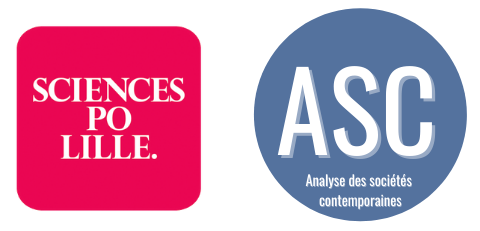Welcome to the website of the Analyse des Sociétés Contemporaines (ASC)/Analysis of Contemporary Societies Major at Sciences Po Lille.
Course objective
The Analyse des Sociétés Contemporaines (ASC)/Analysis of Contemporary Societies Major offers students tools and methods for studying the major issues and debates of the present world, at local, national, and international scales.
This multidisciplinary program draws from various social sciences (history, economics, political science, demography, sociology, and ethnology). Open to diverse methodological approaches and theoretical perspectives, it emphasizes empirical understanding of political, economic, and social phenomena, particularly by initiating practice in the social sciences.
It aims to train students through the acquisition of specific skills in social sciences and the organization of pedagogical and scientific operations (organization of study days, research workshops, collective surveys, writing scientific articles, creating an online magazine, etc.). Notably, a field internship is organized in the first semester of the fourth year : during this week-long ethnographic fieldwork, students are supervised by a team of researchers to conduct a monographic investigation on a specific site (related to employment, education, housing, lifestyle, security, religion, sports, etc.).
The program aims to sharpen students’ reflexivity and provide a better grasp of the complexity of reality to question the links between science and action.
Main career opportunities
The ASC major prepares students for careers in teaching and research (history, sociology, political science, economics, anthropology, demography, etc.) as well as for all economic, social and political analysis professions outside the academic world (consultancy, expertise, communication, journalism, publishing, etc.).
It also prepares students for various activities related to the political profession (as collaborators of elected officials, for example).
Offered only in the fourth year, it opens pathways in the fifth year to four main options:
- A research-oriented Master’s degree in France (such as the joint program offered between Sciences Po Lille and the University of Lille ‘Research Careers in Political Science’) or internationally. This program enables further studies towards a Ph.D. (with research funding).
- Preparation for the Aggregation in Economics and Social Sciences or History.
- The Communication and Media (CEM) major, focusing on careers in information, media, communication, and politics.
- A journalism school
Heads of the ASC major

Cédric Passard
Senior lecturer in political science
Research Areas: Socio-history of politics; sociology of literature and symbolic goods; social history of ideas; discourse analysis; electoral reforms
Editorial by the head of the major
Offered only in the fourth year, the new major ‘Analyse des sociétés contemporaines’ aims to engage with current issues (from local to global) to consider the links between knowledge and power. It claims a dual originality.
On one hand, it aims to promote multidisciplinarity and a variety of approaches in the human and social sciences. While recognising the specificity of different disciplinary traditions, it aims to foster exchanges in order to offer an innovative perspective and to give students the greatest possible freedom in their choice of research topic and approach.
On the other hand, it proposes to empirically grasp (including in their historicity) political, economic, and social phenomena; far from opposing theory and practice, it invites to consider society through a true research approach involving confrontation with facts, reality, and « fieldwork ». It also holds a particular interest in experiments and emerging methods.
While the content of the program is open to various themes, the major emphasizes the acquisition of skills and mastery of research techniques for professionalization. Investigative work (archival, statistical, ethnographic, digital) is inherently central to the program.
While one of the aims of the major is to train students for teaching and research careers, it is also aimed at all those who wish to use the contributions of the social sciences outside the academic world (media, associations, political parties, trade unions, think tanks, etc.) to contribute to civic life.
The career prospects of the major reflect its nature: diverse (roles in economic, social, and political analysis in public, semi-public, private, or associative organizations; journalism, publishing, and popularizing scientific careers; communication and opinion research roles; political careers, etc.).
Cédric Passard
